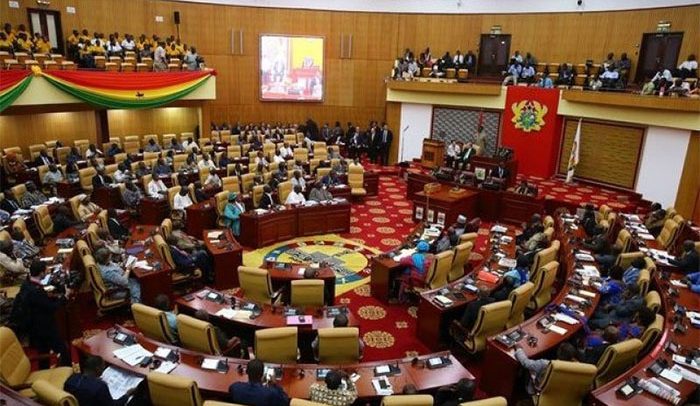PARLIAMENT HAS been advised to, as a matter of urgency, pass the Tax Exemptions Bill.
Send Ghana, a non-governmental organisation, which gave the advice Thursday in Accra, in its assessment of the 2022 national budget submitted to Parliament recently by Finance Minister Ken Ofori-Atta, said it is estimated that Ghana loses substantial revenue i.e. over GH¢5 billion every year through tax exemptions.
Various CSOs and individuals have called for government to take a closer look at the tax exemptions regime to rake in more revenue.
“We are thus elated that the 2022 budget mentioned that the Exemptions Bill has been completed and laid before Parliament for passage. We therefore would like to implore Parliament to prioritise the passage of the tax exemption bill, and subsequently monitor its implementation.”
Rationalise Government Expenditure
It said while it acknowledged the need to increase domestic revenue mobilisation, the government should take the expenditure rationalisation and optimisation of resources seriously to reduce the budget deficit.
“It is critical to check profligacy and mismanagement, reduce corruption, and instill fiscal discipline by enforcing commitment controls in line with Public Financial Management Act, 2016 (Act 921).”
Release Fertiliser Purchase Funds On Time
The government has increased allocation to Planting for Food and Jobs (PFJ) from GH¢439,056,000 in 2021 to GH¢614,056,000.00 in 2022.
The increase in allocation is expected to have a corresponding increase in the number of target beneficiaries, and to also help clear all outstanding debts owed to input suppliers. “While this is commendable, the government should endeavor to release funds on time to avert the delays in the distribution of fertilisers and certified seeds to smallholder farmers, as Send Ghana’s monitoring of the 2021 planting season reveals. Besides, there are widespread media reports of subsidised fertilizer smuggling, especially across border towns in the Upper West, Upper East, and Eastern regions.”
Ghana reportedly lost GH¢120 million from unaccounted fertilizer coupons and fertilizer smuggling during the 2017 and 2018 planting seasons.
It made reference to recent media reports which revealed that fertiliser smuggling was very serious, “especially when you look at border towns such as Sissala West, Kasena Nanka, Bawku, and Garu, despite the border closure. President Akufo-Addo revealed during a visit to the Upper West Region this year that, in June 2021, about 13,500 bags of subsidised fertiliser valued at GH¢1.6 million were carted out of the country through the Sissala West District to Burkina Faso.”
Smuggler Prosecution
“Our investigations reveal there are no existing by-laws for the prosecution of fertiliser smugglers. This underscores the urgent need for government to come out with more effective strategies and also intensify efforts to curb the menace, thus safeguarding the high investment made in the fertiliser subsidy programme.
Invest More Into Irrigation
The NGO said the contribution of PFJ to increased food production could not be disputed. However, the initiative could do better and avoid food shortages by not relying on rains. “This calls for budget to be invested in irrigation schemes, machinery, and equipment to enable farmers—especially women—to have access to these schemes, expand their farms, and increase production. We are therefore asking Parliament to consider shifting budget lines in the sector to initiatives that will be most beneficial to increasing yields and contributing to reducing hunger and poverty.”
Consider Agribusiness In YouStart Initiative
It continued that the government’s intention to create an entrepreneurial nation with the YouStart initiative is most laudable.
“As much as this is important to reducing Ghana’s unemployment rates, we also think it is important to deliberately allocate a percentage of the GH¢1,000,000,000 for youth already engaged and those with the interest in agribusiness for enhanced job creation and ownership, as the country leverages on the African Continental Free Trade Area to economic transformation.
“The government’s investments in the PFJ and other related interventions should also contribute to increasing agro-processing and service provision (financial, transport, and marketing services) along the value chain.”
BY Samuel Boadi


